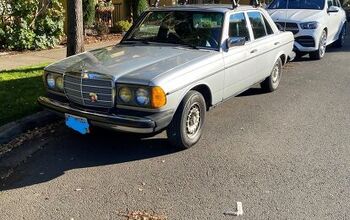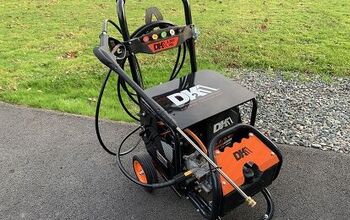BMW's Game Plan: Connectivity, Autonomous Technology and a Whole Lot of Plug-ins

BMW Group is laying out its game plan for the future, and it includes a lot of new electric vehicles.
Beyond the marketing buzzwords, there’s much similarity between BMW’s plan, released yesterday, and those of so many other automakers: building high-tech convenience and connectivity into their vehicles, diversifying their electric offerings, developing autonomous driving technology, and making the customer feel extra special.
The immediate effect on BMW’s rolling stock will be an expanded “i” range of all-electric or plug-in hybrid models, starting with a convertible version of the i8 and a longer-ranged version of the i3 by the end of this year.
In addition to gas and electric, BMW plans to continue development of hydrogen fuel cell technology in the hope that all three propulsion types can one day be applied to a single platform. It’s a move towards the adaptable architecture many automakers are pursuing.
While BMW’s “project i” tackles electric vehicle technology, “project i 2.0” is designed to mate that expertise with autonomous driving technology.
“Our focus is clear: we are securing the BMW Group’s position as technological market leader,” said Klaus Fröhlich, the board member responsible for development, in a statement.
“With project i 2.0 we will lead the field of autonomous driving. We will turn research projects into new kinds of industrial processes, bringing future technology onto the road.”
Key areas of focus will be digital maps, sensor technology, cloud technology and artificial intelligence. Some of the automaker’s early development of self-driving technology can be seen in the self-parking 7-series; new advancements will be added on as the technology becomes available on more models.
Like other automakers, all of BMW’s new technology isn’t necessarily going to be developed in-house. Through its BMW i Ventures group, the automaker plans to keep an eye on independent startups, investing in them if necessary in order to capitalize on certain products or emerging trends.
The development of mobility services will continue alongside vehicle technology.
Despite its pursuit of a connected, driverless future, the automaker plans to continue wringing efficiencies out of its internal combustion engines, while expanding those model lines.
Every business needs money to grow, and BMW says it knows where to find it: at the top end of the market. A planned premium SUV, the X7, is designed to meet public’s seemingly unquenchable thirst for ultra-luxury utility vehicles while delivering a high rate of return.
When you’re planning on changing the (driving) world, you have to be honest about where the funds will come from.
[Image: © Alex L. Dykes/The Truth About Cars]

More by Steph Willems
Latest Car Reviews
Read moreLatest Product Reviews
Read moreRecent Comments
- Kwik_Shift_Pro4X Where's the mpg?
- Grg These days, it is not only EVs that could be more affordable. All cars are becoming less affordable.When you look at the complexity of ICE cars vs EVs, you cannot help. but wonder if affordability will flip to EVs?
- Varezhka Maybe the volume was not big enough to really matter anyways, but losing a “passenger car” for a mostly “light truck” line-up should help Subaru with their CAFE numbers too.
- Varezhka For this category my car of choice would be the CX-50. But between the two cars listed I’d select the RAV4 over CR-V. I’ve always preferred NA over small turbos and for hybrids THS’ longer history shows in its refinement.
- AZFelix I would suggest a variation on the 'fcuk, marry, kill' game using 'track, buy, lease' with three similar automotive selections.


































Comments
Join the conversation
Focusing on the EV aspect of the above article, I really do not get the i3. At all. When Tesla finally proved there was a market for sexy high-performance luxury vehicles, I thought BMW would be all over that. I figured soon they'd be rolling out an electrified equivalent of the M5, or whatever. Gorgeous. Blazing fast. Makes you want it in an irrational way. Instead they gave us...the i3. As far as I can tell, it's a slightly better version of the Nissan Leaf, for about $20K more, with a generous dollop of the funky-ugly science-experiment styling that all manufacturers firmly believe are what EV customers must surely want. (Why???) Is the "i" series of cars going to be BWM's dork lineup?
They should turn their technological prowess toward figuring out how to keep the oil INSIDE the engine.